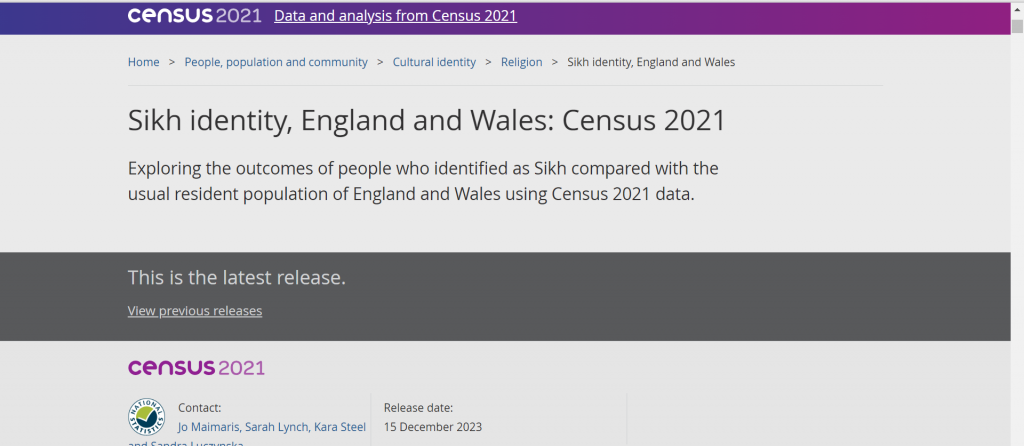
Newly released data from the Office of National Statistics (ONS) show that only 0.3% of Britain’s 525,865 Sikhs accept the Sikh Federation UK’s (SFUK) line that UK Sikhs are a singularly distinct ethnic group, and not a part of a forward-looking world religion open to all.
The Details
ONS statistics from the 2021 Census show: 426,230 people identified as Sikh through the religion question alone – that’s 81% of the total number of responders and the vast majority.
Only 1,725 responded through the ethnic group question alone – 0.3% of the total number of responders. This is a significant drop from the 2011 Census, where 6,862 identified their ethnic group only as ‘Sikh’. The absurdity of the SFUK’s longstanding campaign is illustrated by data from within this tiny segment of 1,725 who identified their ethnic group as ‘Sikh’.
Remarkably, 55.4% of them did not report their religion, 13.6% recorded it as Muslim, 12.5% reported no religion and 8.7% said their religion was Christian. So, thanks in part to the SFUK, and the lobbying via the SFUK influenced APPG for British Sikhs – we absurdly have ‘ethnic’ Sikhs who are Islamic by faith – ‘ethnic’ Sikhs who are Christian (it is not clear if they are Catholic or Presbyterian) and ‘ethnic’ Sikhs who don’t have a faith – this presumably includes atheists and agnostics.
The question to ask SFUK – a simple yes or no – was Guru Nanak the founder of a global world religion? Moreover, British Sikhs now deserve to know how much of the sangat’s money was used in legal fees to challenge the ONS through the courts?
The positive findings
Indeed, there are some positive findings from the Census data not least:
- Around a third (36.7%) of people who identified as Sikh reported a Level 4 or above qualification, similar to the percentage for the England and Wales population (33.8%)
- Higher percentages of home ownership among people who identified as Sikh (77.7%), compared with the England and Wales population (62.7%).
- People who identified as Sikh were more likely to be married than the England and Wales population (61.0% and 44.4%, respectively) and were more likely to have married younger.
[ENDS]


Leave a Reply
You must be logged in to post a comment.